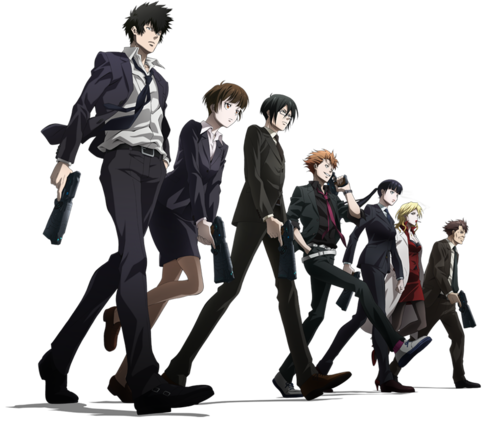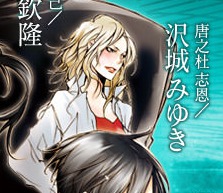While we’re on the subject of noitaminA, the block’s been celebrating its tenth anniversary with a few specials. This one’s a charming short film called Poulette’s Chair (Poulette no Isu), directed by independent filmmaker Hiroyasu Ishida. Ishida previously released the one-man project Rain Town in 2011, and he’s also got a Pixiv page if you’re into that kind of thing.
Posts from #noitamina
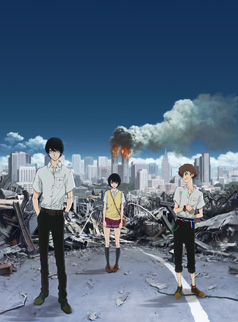
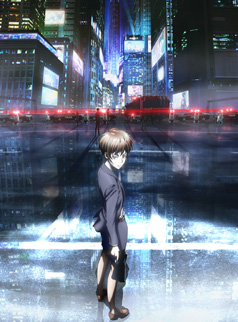
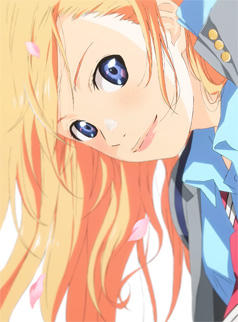
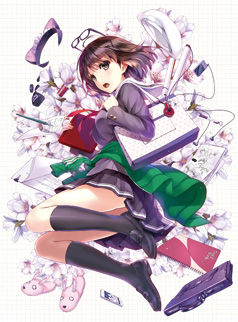
noitaminA announced their upcoming lineup just a few hours ago, and boy, am I excited. This spring’s shows Ping-Pong (directed by Masaaki Yuasa of Tatami Galaxy renown) and Ryuugajou Nanana no Maizoukin were already announced some months ago; joining them in the summer will be Zankyou no Terror, a show about a terrorist attack in Tokyo. Direction will be by Shinichirou Watanabe, with music by Yoko Kanno, pairing up again after Kids on the Slope. The fall will see the long-awaited sequel to Psycho-Pass, leading into a feature film in the winter, as well as an adaptation of Shigatsu wa Kimi no Uso, which received Best Shounen at the Kodansha Manga Awards last year. 2015 will open with an anime version of the Saenai Heroine no Sodatekata light novel series, along with adaptations of Project Itoh’s multi-award-winning science fiction novels Genocidal Organ and Harmony.
There’s a lot to look forward to here. And they say noitaminA is dead.
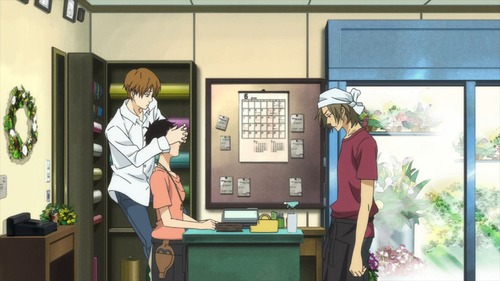
It may have a lot of flowers, but Natsuyuki Rendezvous is not a pretty show. I’m not talking about the visuals, of course; the technical execution is fluent enough to make discussion superfluous. No, the ugliness lies in the characters and the story built around them, one that’s rent with jealousy, dishonesty, and selfishness.
This dark, cynical view of romance is actually refreshing, in a way – a mature acknowledgment that well-intentioned misunderstandings don’t even begin to cover the depths to which human relationships can plunge. Natsuyuki Rendezvous simply makes its point a little too well. It does a good job of showing how flawed its main cast can be, but often forgets to balance the negative with a little of the positive. Even if the intent is to illustrate that love isn’t the panacea that it’s often cast as, it’s hard to take this lesson in stride when the characters seem drawn towards their own destruction from the outset. The heart of the story, after all, kicks into action when one side of the central love triangle gets himself drunk, then in a fit of self-loathing agrees to let the ghost of his beloved’s dead former husband take over his body. It takes him nearly the entire series to realize that this might not have been such a good idea.
I wouldn’t go so far as to condemn Natsuyuki Rendezvous’ characters as bad people. On a logical level, their words and actions make sense to me, given their respective histories. On an emotional level, though, the series veers dangerously close to making them impossible to relate to, something that never bodes well for a romantic story. It’s this division that leaves me rather ambivalent about the show as a whole. If you want a quantitative verdict, I’ll give it a 6 of 10, but more so than usual, I don’t think a number is nearly representative enough.
Psycho-Pass Website Updated
Lookin’ pretty spiffy. Here’s to hoping that Production I.G can leave Guilty Crown in the past, in favor of another Ghost in the Shell. I’d even go for a repeat of Eden of the East.
“Miyuki Sawashiro is in everything,” part 76.
